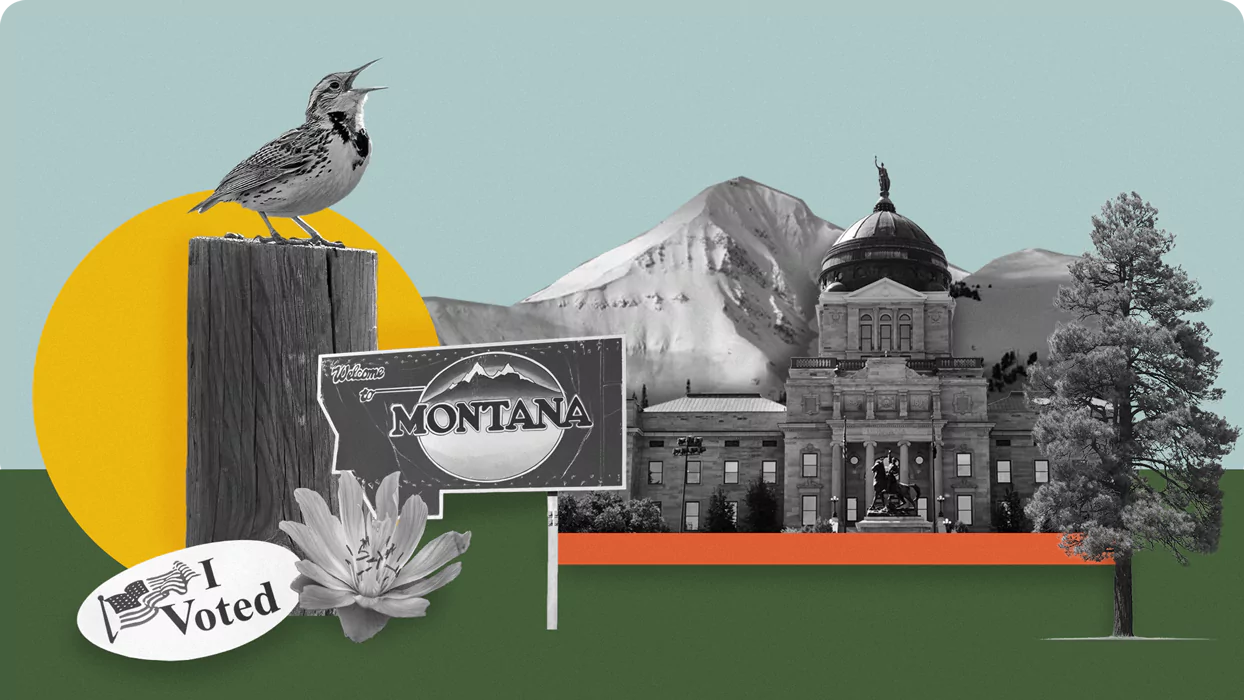
Montana 2024 Supreme CourtVoter Guide
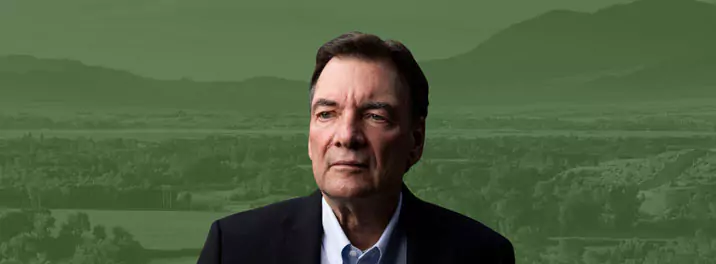
Judge Jeremiah “Jerry” Lynch
WHAT TO KNOW
- Endorsed by Reproductive Freedom for All
- Endorsed by six former Montana Supreme Court Justices
- Said that abortion is a personal decision that should be made “free from government interference.”
Qualifications:
- Federal Magistrate Judge, 2006-2019
- Private practice attorney
- Law clerk for former Montana Chief Justice Paul Hatfield
Judge Jerry Lynch served as a federal magistrate judge. He said he is running to uphold the Montana Constitution and protect the rights of all Montanans — safeguarding our access to public lands, ensuring women can make personal decisions about abortion without government interference, and preserving our right to privacy. Lynch said “the judicial system has to remain independent” and he will work hard to preserve its integrity. Originally from Butte, Lynch served as a law clerk for federal judge and former Montana chief justice Paul Hatfield. He also spent a decade in private practice and served on the Montana Board of Public Education.
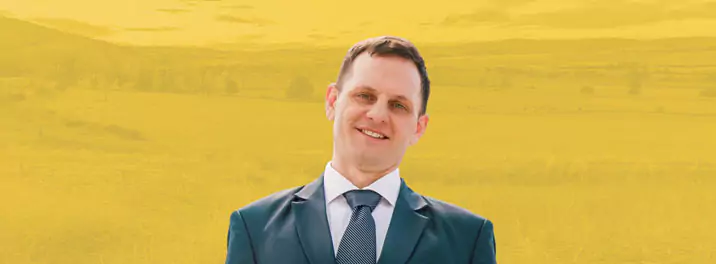
Cory Swanson
WHAT TO KNOW
- Endorsed by the Montana Chamber of Commerce
- Backed by anti-abortion groups that want to ban abortion without exceptions for rape and incest
- Supported large landowners trying to restrict water rights of neighbors
Qualifications:
- Deputy Attorney General
- Broadwater County Attorney
Cory Swanson is a Broadwater County attorney. He has no judicial experience, and says his experience as a criminal law and private practice attorney uniquely qualifies him for the job of Supreme Court Chief Justice. He has a history of working in partisan politics and is a former paid lobbyist.
How does the court impact this issue?
Since the Supreme Court overturned Roe v. Wade in 2022, Montana has seen an onslaught of anti-abortion laws attempting to roll back reproductive freedom in the state. Just this year, the district court heard and struck down a case that would have created a 20-week ban on abortion. Future laws are likely to make their way to the Montana Supreme Court, which will decide the fate of abortion access in the state.

Judge Jeremiah “Jerry” Lynch
Judge Lynch has said that Montanans should be able to make personal decisions “free from government interference, especially when it comes to reproductive rights …”

Cory Swanson
Swanson accepted a donation from the head of an anti-abortion group and has worked for politicians who support abortion bans.
How does the court impact this issue?
Montana has millions of acres of pristine, wild public lands, and our state Constitution is one of only two in the country that codifies our right to a “clean and healthful environment.” Increasingly, however, out-of-state millionaires and corporations are looking to buy up acreage and infringe on our rights to hunt, fish, and recreate on public lands. Water and land disputes often make their way to the Montana Supreme Court, where justices are charged with making decisions that determine the future of our natural resources and the public’s ability to continue accessing them.

Judge Jeremiah “Jerry” Lynch
Lynch is supported by groups that protect Montanans’ right to access our public lands. He has also pledged to safeguard the Montana Constitution, which asserts our right to a “clean and healthful environment.”

Cory Swanson
Swanson says he works to “protect private property rights.” As an attorney, Swanson has supported the rights of landowners over public access. Swanson was a paid lobbyist that worked to restrict stream access. As a county attorney, he supported some large landowners to restrict water rights of neighbors.
How does the court impact this issue?
Montana’s Constitution is like no other state constitution in the country, written by and for the people — not politicians — to protect our rights to privacy, to a free and quality public education, to protect and access our abundant natural resources, and more. The Montana Supreme Court is frequently charged with ruling whether a lower court’s decision upholds or violates our constitution.

Judge Jeremiah “Jerry” Lynch

Cory Swanson
Swanson has stated that judges inevitably have to interpret the Montana Constitution beyond how it is written, saying the court “should do its very best to interpret the statutes and evaluate them relative to constitutional claims.”
How does the court impact this issue?
The Montana Supreme Court weighs in on legal issues that impact the health, safety, and financial security of workers across Montana. In 2020, for instance, the court ruled that mineworkers in Libby should be able to pursue insurance claims for the company’s failure to warn them about asbestos exposure on the job.

Judge Jeremiah “Jerry” Lynch
Judge Lynch said he was “union raised” and witnessed first-hand the risks many workers take on the job. Lynch lost his grandfather to black lung disease. He is endorsed by the Montana Federation of Public Employees.

Cory Swanson
We could not find any record of Swanson’s position on our economy.
How does the court impact this issue?
The Montana Supreme Court decides cases regarding education funding, access, and more.

Judge Jeremiah “Jerry” Lynch
In interviews, Judge Lynch said he is a strong proponent of protecting a quality, free public education, a right established in the Montana Constitution. He also served on the Montana Board of Public Education.

Cory Swanson
We could not find any record of Swanson’s position on public schools.
How does the court impact this issue?
The right to privacy is a fundamental value in the Montana Constitution. Historically, the Montana Supreme Court has upheld and affirmed that right, including a recent unanimous decision upholding young people’s right to privacy when seeking an abortion.

Judge Jeremiah “Jerry” Lynch
Judge Lynch stated: “I have only one purpose: to protect the 1972 Montana State Constitution … The Montana State Constitution protects everyone’s rights to privacy.”

Cory Swanson
We could not find any record of Swanson’s position on right to privacy.
How does the court impact this issue?
Across the country, courts are becoming a lightning rod for partisan attacks. The role of the justices on our state Supreme Court is to interpret and uphold the United States and Montana Constitution – free from politician interests and personal policy preferences. The law should be applied fairly, impartially, and free of personal bias.

Judge Jeremiah “Jerry” Lynch
Judge Lynch has stated that the judicial branch must remain independent and nonpartisan so that any ruling by the courts can be respected. According to Judge Lynch, “A good justice is someone who can write an opinion that may upset his friends and earn the respect of his opponents because that is what the facts and the law require.”

Cory Swanson
Despite Swanson’s previous work on behalf of partisan officials in Montana, he says he is running for Supreme Court to “return the Court to its correct function as an interpretive, not law-making, body.”

Judge Jeremiah “Jerry” Lynch
Endorsers:
- Reproductive Freedom for All
- Montana Conservation Voters
- Montana Federation of Public Employees
- Montana Rural Voters
- Retired MT Supreme Court Justice
Patricia O. Cotter - Retired MT Supreme Court Justice
W. William Leaphart - Retired MT Supreme Court Justice
James C. Nelson - Retired MT Supreme Court Justice
James A. Regnier - Retired MT Supreme Court Justice
John Warner - Retired MT Supreme Court Justice
Michael W. Wheat

Cory Swanson
Endorsers:
- Montana Chamber of Commerce
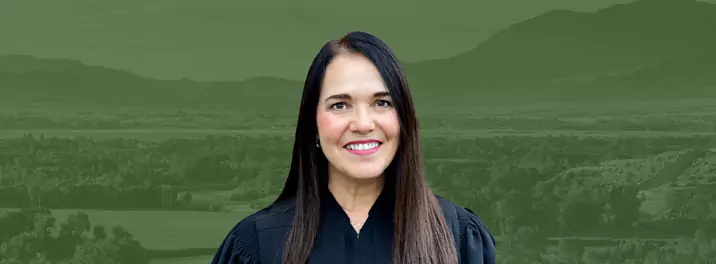
Judge Katherine Bidegaray
WHAT TO KNOW
- Endorsed by Reproductive Freedom for All
- Endorsed by Montana Conservation Voters
- Has pledged to “safeguard abortion and uphold our rights”
- Said that the right to access public lands and water should be preserved for all Montanans
Qualifications:
- District Court Judge
- Attorney
- Deputy Securities Commissioner, State Auditor’s Office
Judge Katherine Bidegaray is a state district court judge. A native Montanan, she grew up on a ranch in Sidney and has over forty years of judicial experience, including as a judge, attorney, and Deputy Securities Commissioner in the State Auditor’s office. Judge Bidegaray has said that the rights given to us in the Montana Constitution are under threat and the only way to protect them is with a fair and impartial judiciary that acts with integrity. Bidegaray has pushed back on government interference with women’s personal medical decisions, including “signaling a desire to safeguard abortion access.”
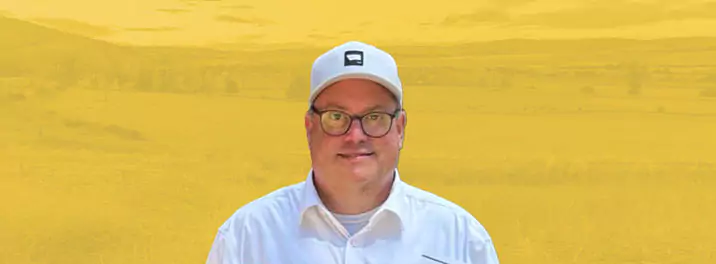
Judge Dan Wilson
WHAT TO KNOW
- Endorsed by the Montana Chamber of Commerce
- Backed by anti-abortion groups that want to ban abortion without exceptions for rape and incest
- Has ruled on behalf of developers over public lands advocates
Qualifications:
- District Court Judge
- Justice of the Peace, Flathead County
- Attorney
Judge Dan Wilson is a Flathead County state district court judge. Prior to his district court tenure, Wilson served as a county justice of the peace. Before becoming a judge, he worked in criminal law and as a private practice attorney. He said he is running for Montana Supreme Court to safeguard the judiciary as a co-equal branch of government.
How does the court impact this issue?
Since the Supreme Court overturned Roe v. Wade in 2022, Montana has seen an onslaught of anti-abortion laws attempting to roll back reproductive freedom in the state. Just this year, the district court heard and struck down a case that would have created a 20-week ban on abortion. Future laws are likely to make their way to the Montana Supreme Court, which will decide the fate of abortion access in the state.

Judge Katherine Bidegaray
Judge Bidegaray has been critical of attacks on abortion access. She said one of the reasons she is running for Montana Supreme Court is to protect “the unique rights provided by the 1972 Montana Constitution, including women’s rights.”

Judge Dan Wilson
Judge Wilson said that the Supreme Court should be allowed to hear cases regarding and possibly strike down laws passed by the legislative branch, including laws that protect reproductive freedom.
How does the court impact this issue?
Montana has millions of acres of pristine, wild public lands, and our state Constitution is one of only two in the country that codifies our right to a “clean and healthful environment.” Increasingly, however, out-of-state millionaires and corporations are looking to buy up acreage and infringe on our rights to hunt, fish, and recreate on public lands. Water and land disputes often make their way to the Montana Supreme Court, where justices are charged with making decisions that determine the future of our natural resources and the public’s ability to continue accessing them.

Judge Katherine Bidegaray
Judge Bidegaray has said that the right to access public lands and water is enshrined in the Montana Constitution and should be preserved for all Montanans.

Judge Dan Wilson
As a judge, Wilson has ruled on behalf of developers over public lands advocates.
How does the court impact this issue?
Montana’s Constitution is like no other state constitution in the country, written by and for the people — not politicians — to protect our rights to privacy, to a free and quality public education, to protect and access our abundant natural resources, and more. The Montana Supreme Court is frequently charged with ruling whether a lower court’s decision upholds or violates our constitution.

Judge Katherine Bidegaray
Judge Bidegaray’s judicial philosophy is to “adhere strictly to the 1972 Montana Constitution, the United States Constitution, and established legal precedents and statutes.” She has stated that it is critical to protect and maintain the rights granted to Montanans through the Constitution.

Judge Dan Wilson
Judge Wilson has said that his job as a judge is to interpret and apply provisions of the United States and Montana Constitutions, according to the original intent of the laws.
How does the court impact this issue?
The Montana Supreme Court weighs in on legal issues that impact the health, safety, and financial security of workers across Montana. In 2020, for instance, the court ruled that mineworkers in Libby should be able to pursue insurance claims for the company’s failure to warn them about asbestos exposure on the job.

Judge Katherine Bidegaray
Judge Bidegaray is endorsed by workers across the state, including the Montana Federation of Public Employees.

Judge Dan Wilson
We could not find any record of Wilson’s position on our economy.
How does the court impact this issue?
The Montana Supreme Court decides cases regarding education funding, access, and more.

Judge Katherine Bidegaray
Judge Bidegaray said that is the job of the Montana judicial branch to uphold our right to a quality, free public education, which is guaranteed through the Montana Constitution.

Judge Dan Wilson
We could not find any record of Judge Wilson’s position on public schools.
How does the court impact this issue?
The right to privacy is a fundamental value in the Montana Constitution. Historically, the Montana Supreme Court has upheld and affirmed that right, including a recent unanimous decision upholding young people’s right to privacy when seeking an abortion.

Judge Katherine Bidegaray
Judge Bidegaray has cited privacy as one of the critical rights under attack by political forces trying to influence judicial decisions. She has stressed the need for the judicial branch to maintain its independence and protect the freedoms given to all Montanans — including the right to privacy.

Judge Dan Wilson
We could not find any record of Judge Wilson’s position on right to privacy.
How does the court impact this issue?
Across the country, courts are becoming a lightning rod for partisan attacks. The role of the justices on our state Supreme Court is to interpret and uphold the United States and Montana Constitution – free from politician interests and personal policy preferences. The law should be applied fairly, impartially, and free of personal bias.

Judge Katherine Bidegaray
Judge Bidegaray said that it is critical for the Montana Supreme Court to maintain its independence and that “decisions should be made based on the law and the facts, not on partisan ideology or politics.” She has also stated that the primary function of the Montana Supreme Court is to ensure that lower court decisions “are fair and constitutional, providing a vital check in our judicial system.”

Judge Dan Wilson
According to the Montana Free Press, Judge Wilson said he’s “not particularly concerned” by the politicization of courts. He has also accepted donations from numerous partisan leaders in Montana.

Judge Katherine Bidegaray
Endorsers:
- Reproductive Freedom for All
- Montana Conservation Voters
- Montana Federation of Public Employees

Judge Dan Wilson
Endorsers:
- Montana Chamber of Commerce
How to Vote
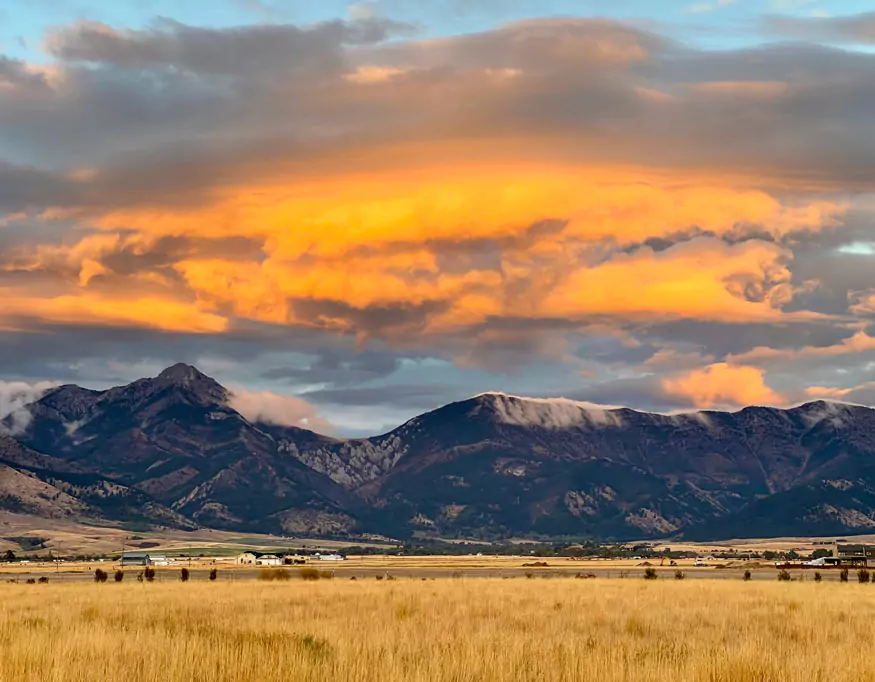
Make your voice heard
Ready to cast your ballot? In Montana, you have several options to make your voice heard. No matter what method you choose, be sure to check your voter registration first. If you are not yet registered to vote, it takes just a few minutes. You can lean about registering to vote and fill out an application online, print and submit an application by mail, or fill one out at your local county elections office. Now, you’re ready to vote!
I want to…
Receive your ballot by mail, return it in person or by mail
- In Montana, any voter can request to receive a ballot to vote by mail. If you have not yet requested a mail ballot, you can fill out an online application, download, print, and submit your application by mail or drop it off at your county election office, or request and complete an application in person at your local county election office. All requests for an absentee ballot must be received by noon the day before Election Day. We recommend requesting a ballot no later than October 25th
- You’re ready to vote! Once you receive your mail ballot, open the envelope and carefully read the instructions included in your ballot packet.
- Complete the ballot with your choices. Be sure to look at both sides of the ballot.
- After you’ve finished voting, place your ballot in the secrecy envelope and then seal it in the return envelope that comes with your ballot.
- This final step is CRITICAL to ensuring your vote counts: Sign the affirmation on the return envelope.
- Now you’re ready to return your ballot. You have two options:
- You can mail your ballot back. Make sure proper postage is applied before dropping it in the mail. All ballots must be received at your county election office or polling place by 8 P.M. on November 5.
- You can drop your mail ballot off at your local county election office or designated election location during business hours at any point before November 5 at 8 P.M. Some counties also provide secure drop boxes where you can return your ballot.
- Check that your ballot was received and accepted at MyVoterPageMT.com
For more information about registering to vote or casting a ballot, visit the Montana Secretary of State website.
Vote in person on election day
- You can vote in person on November 5 at your polling place. Polling locations are open between 7 A.M. to 8 P.M. on Election Day. To find your polling place and hours, visit MyVoterPageMT.com and click “Polling Places.”
- You may be asked to show ID. Valid forms of ID include:
- Valid driver’s license
- MT state identification card
- Military ID
- Tribal photo ID
- US passport
- MT concealed carry permit
- School district or postsecondary education photo ID
- If you do not have a photo ID, you can use a non-photo identification that includes your name and address:
- Current utility bill
- Bank statement
- Paycheck or government check
- Notice of confirmation of voter registration
- Government document
For more information about registering to vote or casting a ballot, visit the Montana Secretary of State website.
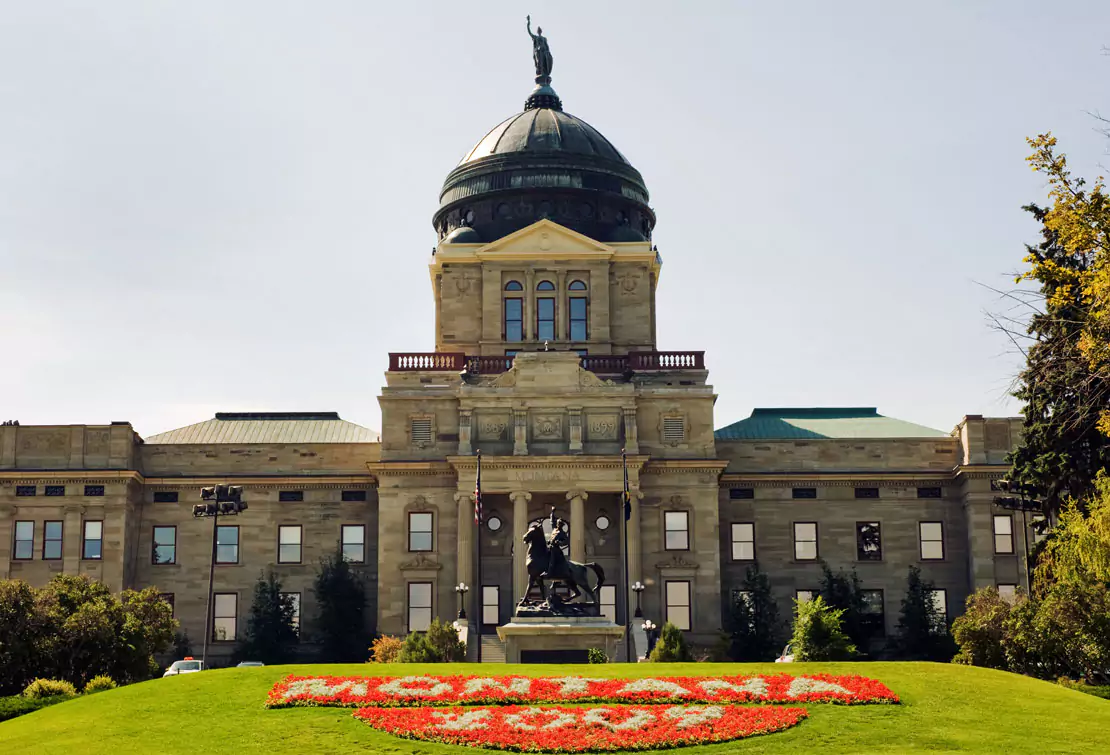
Montana Decides
The guide has been sourced from news coverage, the candidates’ websites, endorsement questionnaires, and other publicly available information. The state Supreme Court has a big impact on Montanans, and we believe it’s critical that voters have as much information about the candidates as possible. The sources we used to compile the guide are available upon request. We encourage you to also do your own research to determine each candidate’s qualifications for office.
